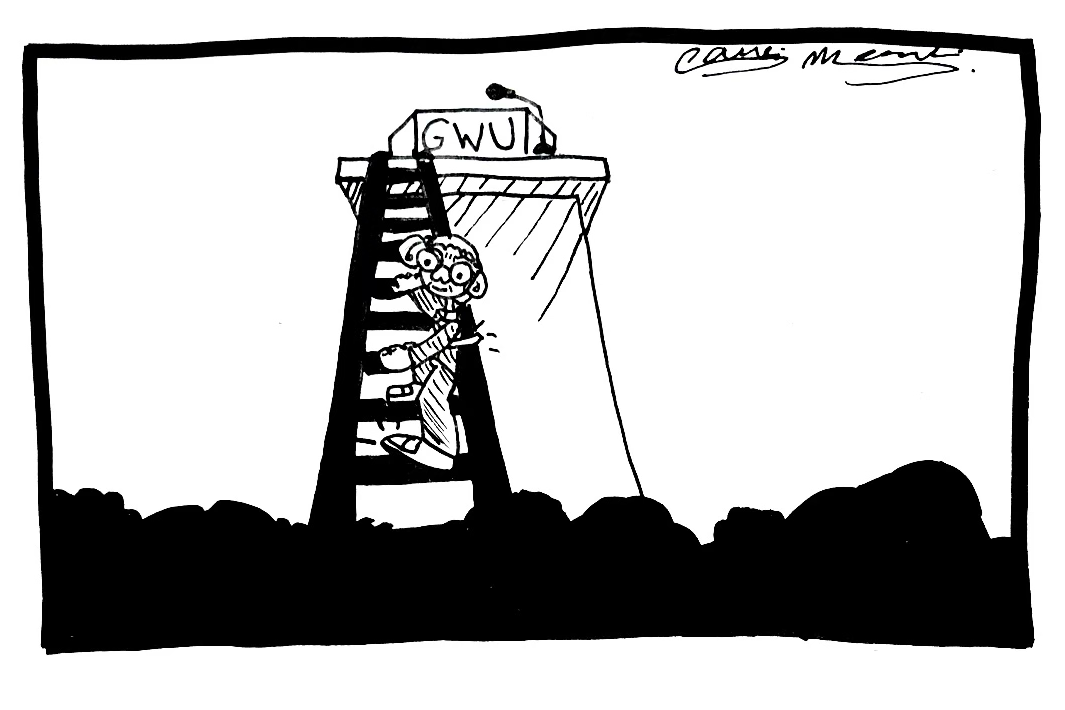Coming from a liberal bubble in Ann Arbor, Mich., I wasn’t prepared for the first time I heard the words “fake news” used unironically. As a Democrat, I disagree with a number of President Donald Trump’s views, but one is particularly troubling – his relentless attacks on the American media.
Trump regularly calls many major media outlets an “enemy of the American people” and has famously referred to them as “fake news.” Although they have occasionally been laughed off, his words do not come without consequence. Millions of Americans have lost their trust in media, focusing their attention solely on the voice of the White House and subscribing to a dangerous echo chamber. The president has had the chance to retract his statements, but instead he has proudly defended them.
In response to the president’s words, The Boston Globe called on fellow newspapers to write editorials pushing back against his anti-media rhetoric. More than 100 media outlets agreed, some small and some large – but all eager to defend the free press. In its call for papers to stand together, The Globe asked for a range of outlets to speak out because “the impact of Trump’s assault on journalism looks different in Boise than it does in Boston.” That is true, and the outcome of Trump’s attitude toward journalism can also be seen on college campuses. The president’s rhetoric goes further than attacking national media outlets – it disrupts journalism on all levels.
Trump’s impact at GW is easily recognizable. Students turned out in droves to protest members of his administration on campus, and hundreds made the walk from campus to the Capitol Building for protests against his policy that separates families at the border. Professors regularly discuss his actions in classes, and posters declaring the wage gap to be fake news have been found on University buildings.
In the wake of the 2016 election, some professors canceled classes or changed course plans, and student groups were upset and angry. These are just a few of the seemingly small ways the president has influenced campus.
The way his actions have changed public opinion toward journalists is the most troubling and even that can be seen at GW.
As a staff member at a student newspaper, I have a greater stake in this than most. The Hatchet rarely fits into the category of newspapers that write about the president, but it still feels the effects of a population that has lost trust in the media.
College newspapers have unique struggles that are different from those faced by other publications. Independent student newsrooms, like The Hatchet, receive no funding from the University and rely on advertising revenue and donations to function. So when the president condemns media across the board and the public further scrutinizes their importance, small papers that struggle to make ends meet – like campus newsrooms – suffer even more than usual.
By attacking media, the Trump administration has created a culture where it’s okay to use fact and opinion interchangeably. When people no longer trust media outlets for reliable information, communities suffer. An independent press has the important role of educating people about the community they are in. If people turn away from news outlets, they will miss important information about the city they live in and the country they vote in, which can threaten our democracy if they are uninformed.
The president considers the media an enemy of the people and uses his bully pulpit to encourage others to ignore them. But don’t be fooled by his contempt toward the media. Instead, remember the informed and intelligent public that comes from having free and independent journalism on campus, in the District and in all communities across the country.
Kiran Hoeffner-Shah, a sophomore majoring in political science, is The Hatchet’s contributing opinions editor.
Want to respond to this piece? Submit a letter to the editor.



